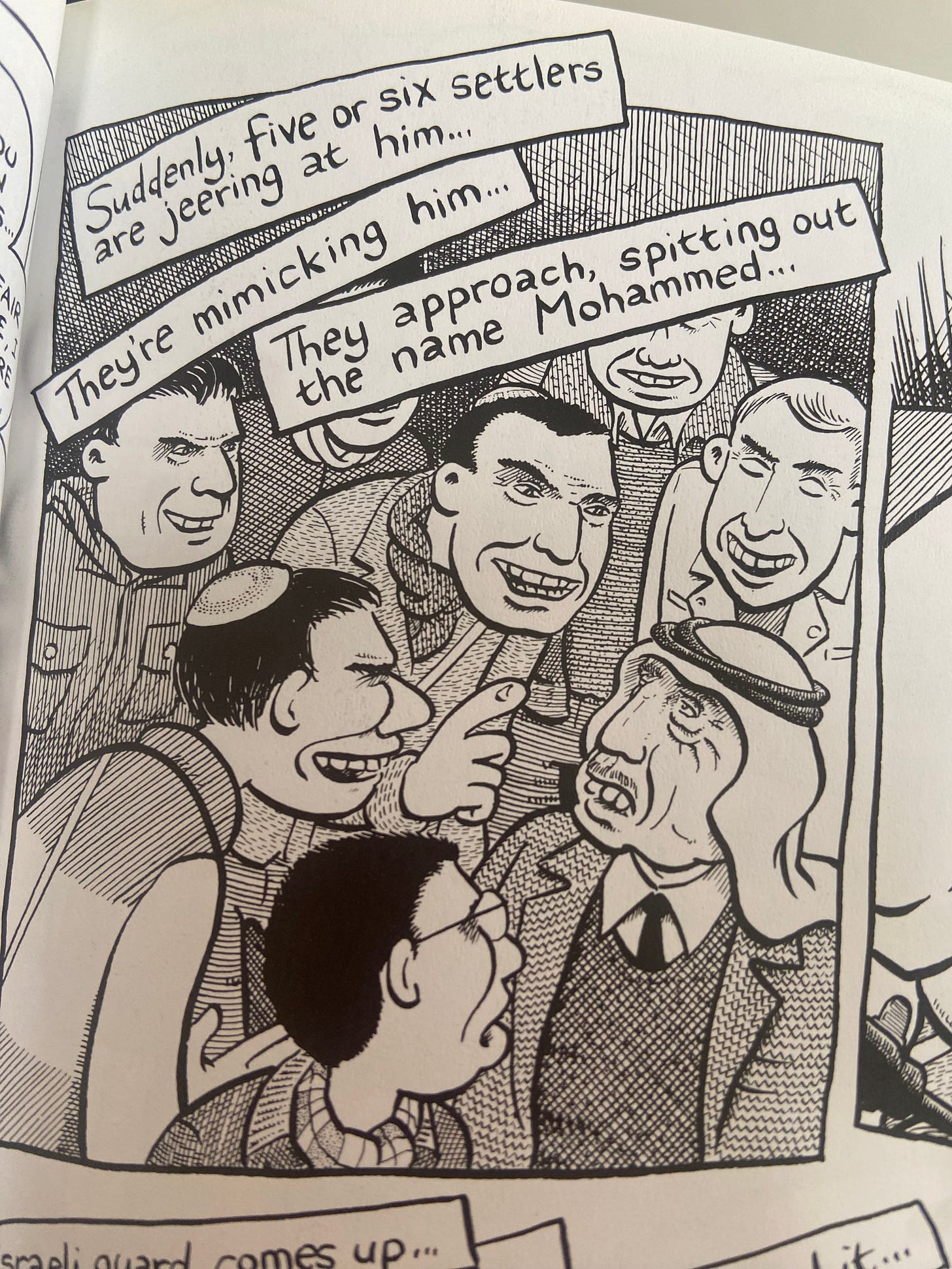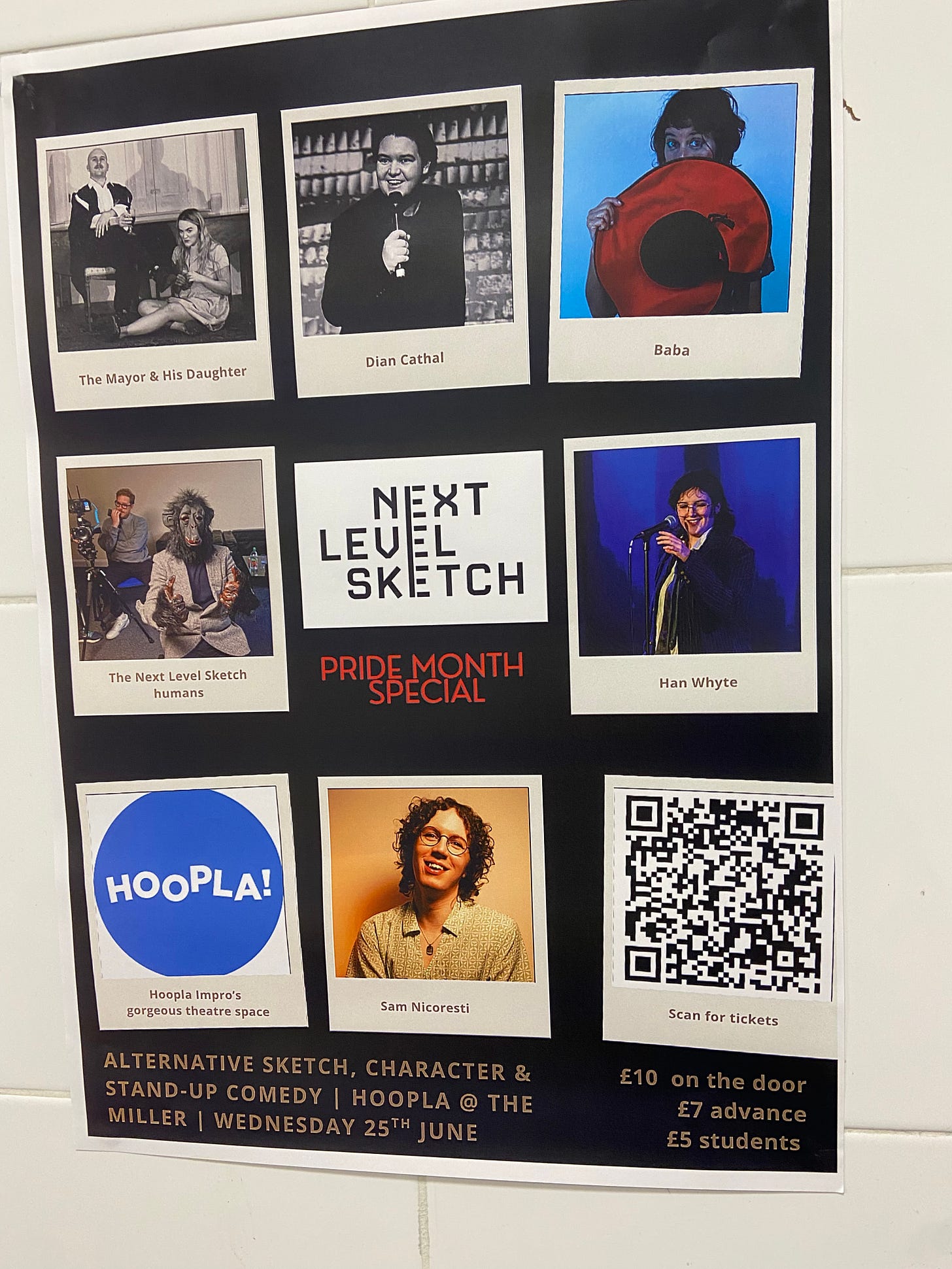There is another James Walsh. He’s the same age as me. He’s from the north. He makes music of an indie persuasion. If you google my name, his achievements, biography, and handsome, if somewhat large face appear.
During lockdown, I became completely obsessed with him, as - like a lot of other white English musicians of a certain age - Walsh fell into a world of anti-vaxxing conspiracy theories.
No longer were his social media feeds promoting new songs or sharing cute kitten videos. Instead, James Walsh was amplifying a series of cranks, grifters, and explicit neo-Nazis. This guy who once wrote gentle, sensitive songs about how silence is easy was now loudly declaring Covid a globalist plot to steal our freedom.
Concerned acquaintances started messaging me. “Hey, we‘ve seen your tweets… are you ok, hun?”.
As James Walsh, successful indie singer, fell deeper into his radicalisation vortex, this other James Walsh, a less successful indie singer, isolated and alone above a car parts shop in Walthamstow, started to doubt both his sanity and his own identity. Was this mirror-Walsh an echo, a warning, or a harbinger of things to come?
Of course, none of this happened.
But this was exactly the experience of writer and author Naomi Klein, who found herself pushing against the thin membrane between selfhood and madness as she watched Other Naomi - ex-feminist author Naomi Wolf - take the path of extreme and extremely profitable reactionary and conspiratorial politics.
The internet was a mistake. This is the first and most important lesson of Doppelgänger, Klein’s extraordinary book.1
The second: the pandemic was a collective trauma we’re barely begun to explore or talk about yet.2
Klein - still, perhaps, most famous for her breakthrough book No Logo - certainly went off the deep end during lockdown, though not in the way I must legally again emphasise James Walsh out of Starsailor did not.
Her family noted her increasing obsession with the Other Naomi; perhaps, when she started regularly listening to Wolf’s appearances on the Steve Bannon podcast, they even considered some kind of intervention.
Being chronically confused with another human may be humiliating, but that’s not all it is. It is also an oddly intimate experience. The boundaries between you and alter-you begin to wear down, becoming thin, even diaphanous. Their problems are your problems, their shame your shame.
A doppelganger is your trail, your shadow, a bit like in the biblical story in which we derive our name, in which Ruth proclaims to Naomi: “Where you go, I will go, and where you stay I will stay”. Perhaps this is why I became, increasingly, not bitter or angry about the confusion, but intensely interested.
Intensely interested and intensely interesting, is Klein, as she follows every thread of the far-right online conspiracist discourse with steely determination, while also weaving everything she finds out into her own personal memior, which gives Doppelganger an intimacy her previous works perhaps lacked.
Klein is also extremely kind and empathetic, even when revealing some of Wolf’s many appalling statements, lies, and distortions, which have, without a doubt, let to many deaths in the real world.
She looks at her double’s journey, notes Wolf’s early issues with dodgy research3 and hyperbolic claims, and understands where she came from, the monster she has come to be, and how easily some parallel version of Klein herself could have become lost on the wrong trail in the infinite garden of forking paths.
There’s a lot here I already knew, from the sheer evil of the big tech companies - with no more lands to conquer, the latest territory is human attention - to the oncoming catastrophe of climate change, the rise of wellness fascism, and the right’s very clever ability to co-opt leftist language, slogans, and concerns for self-defeating and ultimately catastrophic ends.
Also, she is excellent on what she calls diagonalism - the liberal centre’s equal complicity and discombobulating denial of responsibility for the world we’ve created.
I have been writing about how Bannon and Wolf are pipiking words, making a mockery of concepts that matter, and that is deeply disorientating. But so, too, is what more centrist leaders have been doing for much longer: using words as intended, yet with no intention of acting on them. And one form of denialism feeds the other: the outright denialism in the Mirror World is made thinkable by the baseline war on words and meaning in more liberal parts of our culture.
If you read that paragraph and immediately think of Starmer’s potempkin-socialist Labour leadership campaign, and the disaster of a government that’s followed… you’re not the only one.
To live like this is exhausting, to keep informed in this world is increasingly a full time job. This morning, picture me trying to listen to Radio 4’s Today Program and trying to figure out what’s actually happening in the Middle East via the facts they omit, or reading an online Guardian article written - with great seriousness - about regime change in Iran and how it would be bad for our enemies Russia, and therefore good. There are so many tortuous logical leaps and convenient unrememberings within our quickly-collapsing “rules based international order” and its establishment mouthpieces; it’s no wonder so many people simply give up and start believing what is easy.
All of which brings us to the elephant turned charging bull in the room: Israel. The state of a million contradictions, with its propaganda - increasingly shrill, strident, almost proudly, defiantly out of step with reality - still taken with the upmost seriousness by western outlets. If AI is the new aesthetic of fascism, then Israel’s apologists are its most startlingly unironic proponents.
As a Jewish woman, Klein goes into the history of Zionism with rare clarity - and contrasts it with the distorted version of this taught to her and many other diaspora Jews through Hebrew schools, summer camps, and birthright trips to the promised land. Again, she finds mesmerising and contradictory doubles:
In the face of the spectral Shylock, the eternal Jew that is the shadow-double of all Jews, Israel will respond with a doppelganger of its own: the sunbaked, muscle-bound, land-hungry, machine-gun-toting New Jew - that unbound alter ego of the pale, studious, melancholic Old Jew.
For Klein, “Israel… became the doppelganger of the colonial project, specifically settler colonialism”. For what is Manifest Destiny if not holy land bequeathed to a specific people by divine right? What is “making the desert bloom” (hiding the ruins of Palestinian villages under new, invasive forests) but taming the wild frontier? A land without a people for a people without a land: sounds suspiciously like the indigenous-rights denying Western concept of Terra Nullius. Or as Klein puts it: “thinly veiled Judaizations of core Christian colonial conceptions”.
Noting the belated acknowledgement - and immediate denial of - her own country of Canada’s genocide of its indigenous people, Klein realises that all of these distortions are not the opposite of the democratic, civilised West, but its ever-present shadows. Citing non-white writers, thinkers and artists like bell hooks, James Baldwin, and Raoul Peck, Klein posits - controversially, for some - the Holocaust as “an intensified and compacted expression of the very same violent colonial ideology that ravaged other continents at other times”.
This book is not an easy read. Her despair at our dying planet, her family experiences with autism in a world of anti-measles vaccine paranoia, her frustration at the deluge of online misinformation when we desperately need truth and reconciliation: all hit home, and hit home hard. The conclusions here might seem obvious but nevertheless bear repeating: we need to escape our atomised silos, stop worrying about our own personal brands, and get out there into the world. Beauty and hope lies in the collective. Systems can be changed. As the mirror world smashes into a thousand tiny pieces, we can - and must - build something beautiful with the splinters that remain.
What I’ve been writing lately
Big apologies for not having written for a while. I’ve had a time of it. I have, though, been keeping up my Brighton newsletter if that’s of interest to anyone. It should be, it’s great! Pretend you live here, even if you don’t, and sign up. I’ve also started interviewing comedians and other creative humans a bit more often.
I spent May writing a great number of reviews of Brighton Fringe shows. A lot of them are up on my blog - go have a read. I’m particularly proud of the Mayor & His Daughter one.
What I’ve been reading lately
As my mum prepares to head back to the metropole (fine, Nottingham), I’ve been gathering yet more books to stick in my little flat. I could really do with more shelves if anyone has any to spare. My dad had twenty books on Stalin alone.
One reclaimed possession is my copy of Joe Sacco’s Palestine, which I have started re-reading for obvious reasons. Written during the second intifade in 1991, Palestine was a seminal text for me, leading me in all sorts of useful and eye-opening literary directions. A lot of people say Sacco’s drawing of himself with blank eyes behind his glasses was a way of keeping him separate and distinct from the action. I disagree: the author is pretty up front with his own prejudices, annoyances, and petty irritations with the imperfect, noisy, and very human souls he encounters. It’s what makes the work so honest, and so vital. Reading it now is difficult - the vast, vast majority of the people he meets, in Gaza especially, are almost certainly now dead.
Other Walshian projects
Next Wednesday is Next Level Sketch at Hoopla Improv in London Bridge. Come along? It’s our Pride Month special, we’ve got lots of amazing guests, and it’s our last show til the autumn. Depending on my movements, it might be my last show til November.
The Highchurches are back practicing after a Brighton Fringe hiatus due to my co-singer Martha doing her debut show. New songs are emerging, and we’ll be recording some of them later in the year. Watch this space.
I’m currently putting together a zine of some of my travel writings. It’s taking me longer than it should as my brain has been all over the place of late. That’s ok though. I’ll get there. I’ll let you know when it’s ready.
That’s it for this week! I’ll try to be back to a more regular schedule now. Writing keeps me sane, and I appreciate you all for reading. Enjoy the sunshine.
And yet, you are, of course, reading this on it. And I am writing this on it (well, I wrote it up in pen first. I’m odd.)
Indeed, some friends - mainly the ones with the bigger houses, private gardens, and email jobs - even talk of it as a happy time, while acknowledging their good luck and privelege. This feels a minority experience.
It’s no fault of Klein’s own, but I did note with some irony that one of the approving review quotes in my Penguin paperback edition of this book is from disgraced former journalist turned non-fiction writer Johann Hari, guilty of many flagrant distortions, made-up-quotes, and deliberate statistical misunderstandings.






